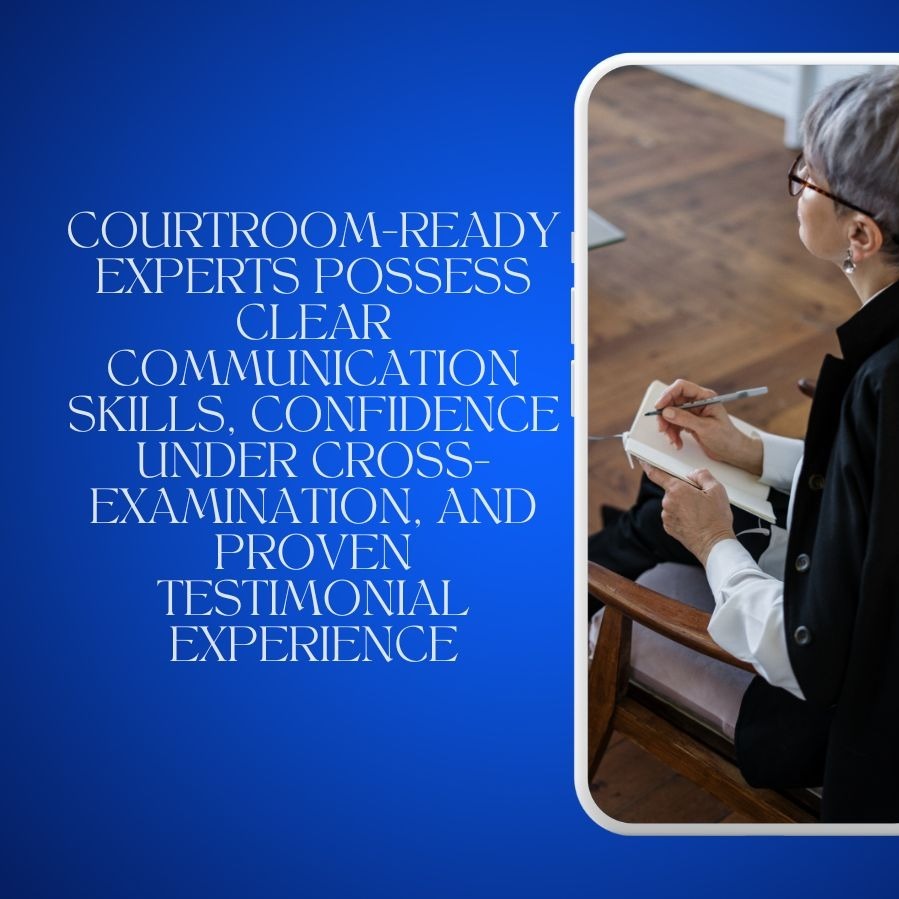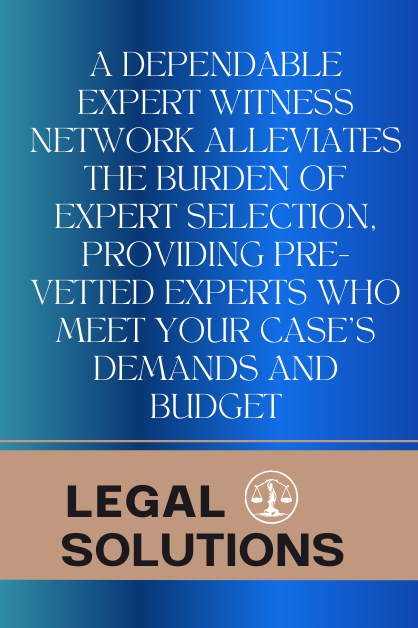Choosing the Best Damages Expert Witness for Financial Cases
We know the pressure you’re under. Inexperienced litigators can make the mistake of rushing to hire a damages expert witness who looked great on paper but faltered in the courtroom. Choosing the right expert isn’t just about credentials; it’s about finding someone who can confidently communicate complex ideas, hold up under cross-examination, and ultimately bolster your case. If you’re feeling the weight of making this decision, you’re not alone. This article is meant to help you avoid costly mistakes and make the best choice for your case.
In financial litigation, selecting the right damages expert witness is critical to the success of your case. The importance of this decision cannot be overstated, as the expert’s testimony often serves as a cornerstone for arguments related to business valuation, lost profits, and corporate damages. However, if an expert is poorly vetted or lacks the necessary qualifications, their testimony could be excluded, significantly weakening your position.

This article explores the lessons learned from past financial litigation cases where damages expert testimony was challenged and provides a roadmap for avoiding costly mistakes. Whether your case involves M&A, intellectual property disputes, or forensic accounting, following these best practices will help you choose an expert who can deliver reliable, courtroom-ready testimony.
Choosing the right damages expert witness is crucial for financial litigation success. Learn how to avoid common pitfalls by balancing cost considerations, vetting thoroughly, and ensuring your expert employs sound methodologies. Discover how litigation support services can streamline this process.
Lessons from Financial Litigation: Why Vetting Experts Matters
In many high-stakes financial litigation cases, the selection of a damages expert witness has proven pivotal. One notable case involved a plaintiff relying on an expert witness to calculate economic damages from a terminated contract. Unfortunately, the expert’s lack of industry-specific experience and flawed methodologies led to their testimony being excluded.
The court found that the expert’s analysis was based on overly optimistic projections and failed to account for market realities, resulting in a weakened case.
This case highlights the need to prioritize industry experience and methodological rigor when selecting a damages expert. A well-vetted expert can substantiate their findings and withstand the scrutiny of cross-examination, whereas an unqualified expert risks exclusion, jeopardizing your litigation strategy.
Key Steps to Selecting the Right Damages Expert Witness
1. Identify the Specific Expertise Needed
The first step in finding the right expert witness is identifying the precise expertise required for your case.
Financial litigation encompasses a wide range of issues, such as:
Business Valuation: Requires experts adept at valuing companies and analyzing market trends.
Lost Profits: Demands expertise in financial reporting and economic forecasting.
Intellectual Property: Involves valuing intangible assets like patents and trade secrets.
M&A Disputes: Calls for an understanding of corporate finance and deal-making processes.
Matching the expert’s experience to the specific financial issues in your case increases the likelihood of admissible and persuasive testimony.
2. Conduct Thorough Research on Potential Experts
A thorough search ensures you select an expert with the right combination of academic qualifications, industry knowledge, and litigation experience. Use the following resources:
Professional Networks:
Seek recommendations from trusted colleagues.

Expert Witness Databases: Leverage litigation support services offering pre-screened experts.
Publications and Industry Events: Identify thought leaders who publish in relevant fields or speak at industry conferences.
By diversifying your search, you increase the chances of finding an expert with the ideal blend of credentials and practical experience.
3. Evaluate Credentials and Practical Experience
When vetting potential experts, consider their:
Certifications and Licenses: Credentials such as CFA or CVA demonstrate technical expertise.
Industry Experience: Real-world experience in the relevant sector strengthens their credibility.
Litigation Experience: Prior courtroom experience ensures the expert can present confidently and withstand cross-examination.
Experts without a balanced combination of these qualifications risk being discredited, as seen in cases where courts excluded testimony due to a lack of industry-specific insight.
4. Screen for Bias and Conflicts of Interest
An often-overlooked step is screening for conflicts of interest. Even a perceived bias can lead to the exclusion of expert testimony.
To mitigate this risk:
Conduct Background Checks: Ensure the expert has no ties to the opposing party.
Assess Their Objectivity: Choose experts with a track record of neutrality in their field.
Addressing potential biases early protects your case from unnecessary challenges.
5. Review Prior Testimony and Methodology
Analyzing an expert’s past testimony can reveal whether their methodologies have stood up to judicial scrutiny.
Focus on:
Courtroom Experience: Review transcripts or summaries of their previous testimony.
Methodological Soundness: Ensure they apply appropriate valuation methods tailored to your case.
Experts who rely on flawed or inconsistent methodologies risk exclusion, as courts often apply rigorous standards, such as the Daubert standard, to evaluate the reliability of expert testimony.
6. Balance Cost Considerations with Quality
While cost is an important factor, opting for the cheapest expert could prove more expensive in the long run if their testimony is excluded. Here’s how to balance cost and quality:
Negotiate Fees: Some experts offer flexible fee structures depending on the scope of work.
Weigh Value vs. Impact: A high-quality expert may justify a higher fee if their testimony significantly strengthens your case.

Investing in the right expert from the outset can save time, money, and credibility in court.
7. Test the Expert’s Opinions Early
Before fully committing, provide the expert with preliminary case materials and ask for an initial assessment.
This allows you to:
Evaluate Their Analytical Approach: Ensure their conclusions are based on sound logic and defensible methodologies.
Identify Potential Weaknesses: Address any gaps or inconsistencies before the expert presents in court.
Early testing ensures the expert’s analysis aligns with your case strategy, reducing the risk of surprises during litigation.
The Value of a Thorough Vetting Process
Selecting the right damages expert witness is a critical component of any financial litigation strategy. By identifying specific expertise, conducting thorough research, and rigorously vetting credentials, law firms can avoid the pitfalls that lead to costly mistakes in court.
For law firms seeking to streamline this process, litigation support services offer access to a network of pre-screened, courtroom-ready experts. These services ensure you have the best possible witness to support your case, saving time and enhancing the quality of your litigation efforts. Visit ExpertConnect Litigation Support today to explore their directory of qualified experts and take the first step toward building a stronger case for a damages expert witness.